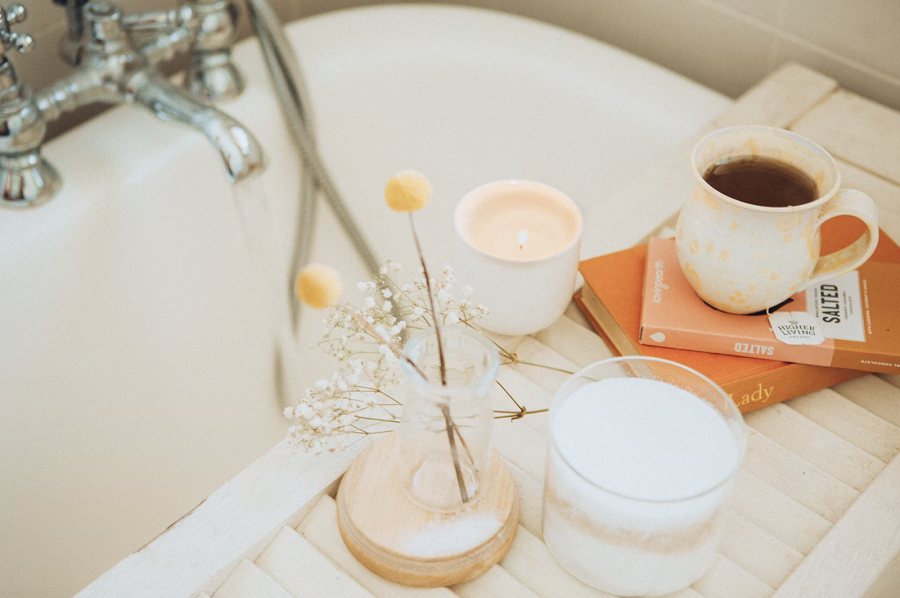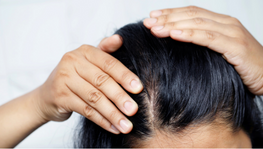
Self care is a critical component of a healthy life. It’s also one of the most misunderstood concepts. People might mistake self care for selfish or self indulgent behaviors, when in actuality, it’s the opposite. The process looks a little different for everyone, but usually involves some sort of stress reduction and prioritizing of the mind, body, and spirit.
The idea is that the best way to reach your goals and care for your community or loved ones is to first take care of you. That means doing things like eating well, taking time to recharge, and exercising.
Sounds easy, right? Then why is our well-being and life expectancy on the decline? The truth is, we’re in an epidemic of depression and anxiety, making the importance of self care simply non-negotiable.
If you’re not sure where to start, following just a few of these tips for self care could give you the lift you need to really thrive.
What does self care mean?
To understand what it is, let’s start by differentiating self care vs self love. The former, defined by The World Health Organization as: “the ability to promote health, prevent disease, maintain health, and to cope with illness and disability with or without the support of a healthcare provider,” are actions you take to maintain your physical, emotional, and spiritual health.
Self love can be the result of good self care or the precursor to it. The term represents the overall feeling you have about yourself. Someone with self love is likely to practice self care instinctually. The rest of us usually just need to take the proper time and give ourselves full permission to make self care a habit.
Benefits of self care
We’re more lonely, stressed, and unhealthy than ever, a recipe for poor quality of life no matter which measuring stick you use.
Devoting dedicated time and effort to your own self care can help you:
- Stay present.
- Improve your relationships.
- Sleep better.
- Increase your self esteem and self love.
- Safeguard your mental health.
- Perform better at work.
- Reduce anxiety and depression.
- Navigate stressful situations.
- Prevent illness and disease.
- Be more content with your life.
How to do self care
Self care is a personal experience. It should be specific to you, a creative curation of the things that make you feel most, well, cared for.
Many self care basics are the same as those you learned as a child: proper nutrition, good hygiene, and regular exercise. However, you can build on this foundation by incorporating any number of self care practices that make you feel nourished. They can be as low-lift as you like and many of the best ones are completely no-cost.
Some of our favorites include:
- Walking and stretching. Exercise is critical, but you don’t have to train for a marathon to see benefits.
- Meditating. Sitting quietly and focusing on your breathing for just ten minutes a day has been statistically shown to improve your well-being.
- Journaling. One page sometime during the course of your day is enough to get you started.
- Practicing gratitude. Whether you write it in your journal, do a review before bed, or have a gratitude buddy you email with, this is a powerful addition to your day.
- Drawing yourself a bath. Beyond good hygiene, baths can relax our muscles and our minds, melting away stress.
- Reading for fun. Yes, audiobooks count, too!
- Ordering (healthy) takeout. Cooking is stress-free for some, and full of stress for others. The main idea is to work in vegetables and nourish your body from the inside out.
- Working with coaches and therapists. No one expects you to do it all on your own. These professionals can work wonders on your mind and mindset.
- Taking our vitamins. Supplements can help give you a boost when you’re feeling lethargic, stressed, or otherwise imbalanced.
- Staying hydrated. This one’s easy. Just stop what you’re doing and drink a glass of water. Really.
- Taking technology breaks. Whether you leave your phone in another room while you sleep, or turn your phone on airplane mode at a certain time of night, just put some intentional distance between you and your devices.
- Treating yourself to a haircut or facial. How you look impacts how you feel. Engage in one of these relaxing practices anytime you need a quick refresh.
- Getting out in nature. Few activities have more built in benefits than nature. Even Yale says so.
- Spending quality time with loved ones. Trust us. You always think you have more time than you do. Savor the moment and be present.
- Saying no. Always remember: no is a full sentence.
Self Care FAQ:
You risk a variety of illnesses, mental dysfunction, and spiritual malaise.
How do you know when you need self care?
Irritability and low-energy are two of the first signs a self care event is in order.
How does self-care improve mental health?
Ready to make yourself a priority? These professionals can help.

Gina Rivera
Beauty Icon and Expert
Gina Rivera skyrocketed to success when the company she founded in 2007, Phenix Salon Suites, became the fastest-growing salon suite company in the beauty industry. With more than 300 locations nationally and international expansion occurring in the UK, Entrepreneur Magazine named Phenix Salon Suites a Top 500 Franchise list seven years running.




